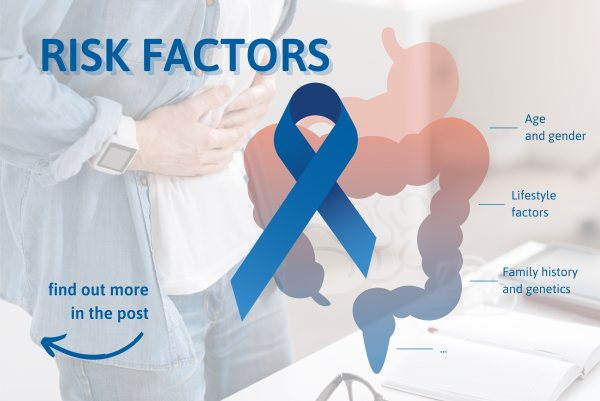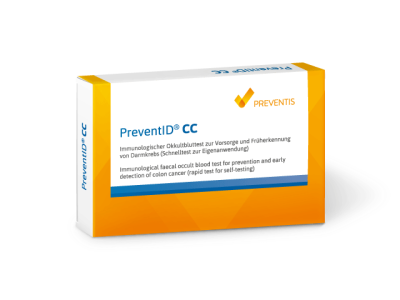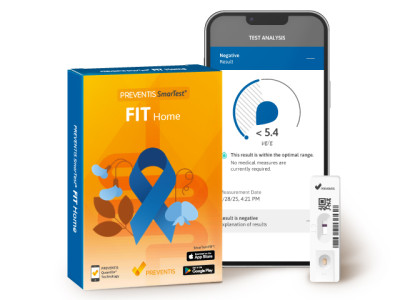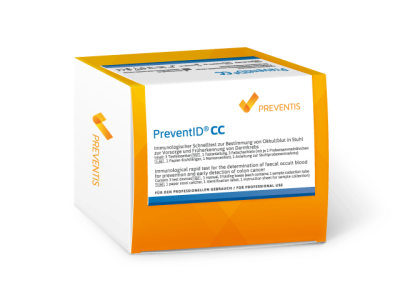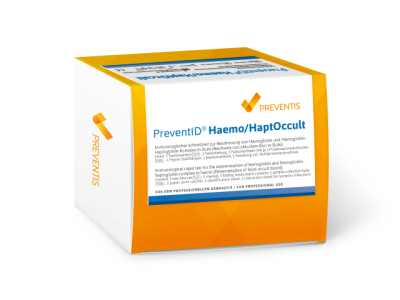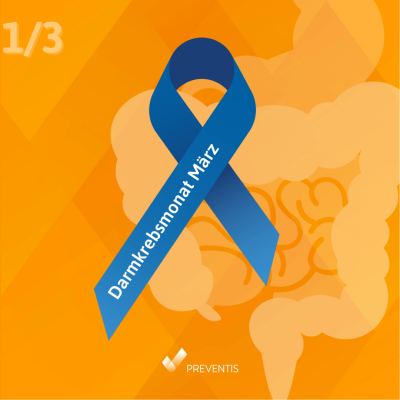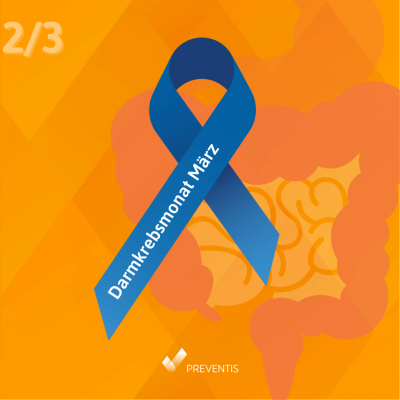Bowel cancer is one of the most common cancers worldwide and can affect anyone. However, certain factors can increase the risk of developing the disease. In this blog post, we look at the main risk factors for bowel cancer and explain why it's so important to be aware of them and take preventative measures.
1. Age and gender
As mentioned in the previous blog post, the risk of developing bowel cancer increases with age. Most people who develop bowel cancer are over the age of 50. Men also have a slightly higher risk of developing bowel cancer than women.¹ ² ³
2. Family history and genetics
A family history of colorectal cancer or certain genetic syndromes such as familial adenomatous polyposis (FAP) or Lynch syndrome can increase your risk of colorectal cancer. People with an increased risk of colorectal cancer, for example due to a family history, could be encouraged to participate in screening programmes earlier and/or more frequently, starting at age 40.⁴ ⁵
3. Lifestyle factors
Various lifestyle factors can influence the risk of colorectal cancer. These include a diet rich in red and processed meat, a lack of physical activity, obesity, smoking and high alcohol consumption.⁶ ⁷ ⁸ ⁹
4. Environmental factors
Exposure to certain chemicals and pollutants in the environment can also increase the risk of colorectal cancer. These include asbestos, pesticides and certain heavy metals that may be present in some work environments. Furthermore, the link between colorectal cancer and proximity to industrial facilities has been investigated and a link has been discovered where polluted air is produced, such as in metal production, the organic chemical industry and the food industry.¹⁰ ¹¹ ¹²
5. Certain pre-existing conditions
People with certain medical conditions such as H. pylori, ulcerative colitis or Crohn's disease have a higher risk of developing colorectal cancer. Diabetics who have type 2 diabetes mellitus belong to this risk group, as do people with chronic kidney disease and high blood pressure. People who have already had cancer in the past also have an increased risk of developing it again. All of these diseases increase the risk as they put the body in a state of chronic inflammation, which can lead to damage. These conditions can also impair the body's ability to repair itself and promote cell growth, which can contribute to the development of cancer.¹³ ¹⁴ ¹⁵ ¹⁶
6. Diet and gut health
An unhealthy, low-fibre diet that is low in fruit, vegetables and wholegrain products can also increase the risk of bowel cancer. Healthy, high-fibre foods support healthy bowel function and can reduce the risk of cancer.
Recent studies suggest that low diversity of the gut microbiome may be associated with an increased risk of developing colorectal cancer. The microbiome plays an essential role in digestion and the immune system. An unbalanced gut flora can lead to inflammation and other conditions that increase the risk of cancer.¹⁷ ¹⁸ ¹⁹
Prevention and early detection
In our last blog post, we discussed the importance of early detection of colorectal cancer.
Although some risk factors such as age and genetics cannot be changed, there are steps you can take to minimise your risk. These include adjusting your lifestyle, such as increasing physical activity and eating a healthy diet, as well as participating in screening programmes.
Early detection of bowel cancer plays a crucial role in the fight against this disease. Through regular screening tests, precancerous lesions can be recognised and treated in good time and cancers can be diagnosed at an early, easily treatable stage. We encourage everyone to find out about early detection and take advantage of the screening options available, because early detection of bowel cancer can save lives.
Since its introduction in 2002, screening colonoscopy has been regarded as the ultimate in the fight against bowel cancer. During this examination, any precancerous lesions detected in the bowel can be removed immediately and painlessly. It is the "one-stop-only measure" for preventing bowel cancer. However, since the introduction of the immunological stool test in 2017, insured persons have had an almost equivalent alternative at their disposal:
"If we compare a screening colonoscopy performed every 10 years with an annual immunological stool test (iFOBT), it turns out that the iFOBT comes very close to the performance of colonoscopy in terms of reducing mortality from colorectal cancer," says Prof Dr Frank Kolligs, trustee of the Felix Burda Foundation and head physician of internal medicine and gastroenterology at Helios Klinikum Berlin-Buch.²⁰
Conclusion
Knowledge of the risk factors for bowel cancer and preventive measures can make a decisive contribution to minimising your own risk. We advise everyone to be aware of the risk factors, adapt their lifestyle and attend regular screening examinations.
A healthy lifestyle that includes regular exercise, a balanced diet, sufficient sleep and stress management can significantly reduce the risk of bowel cancer. We encourage everyone to attend regular screenings and talk to a doctor about individual risk factors and possible preventative measures.
